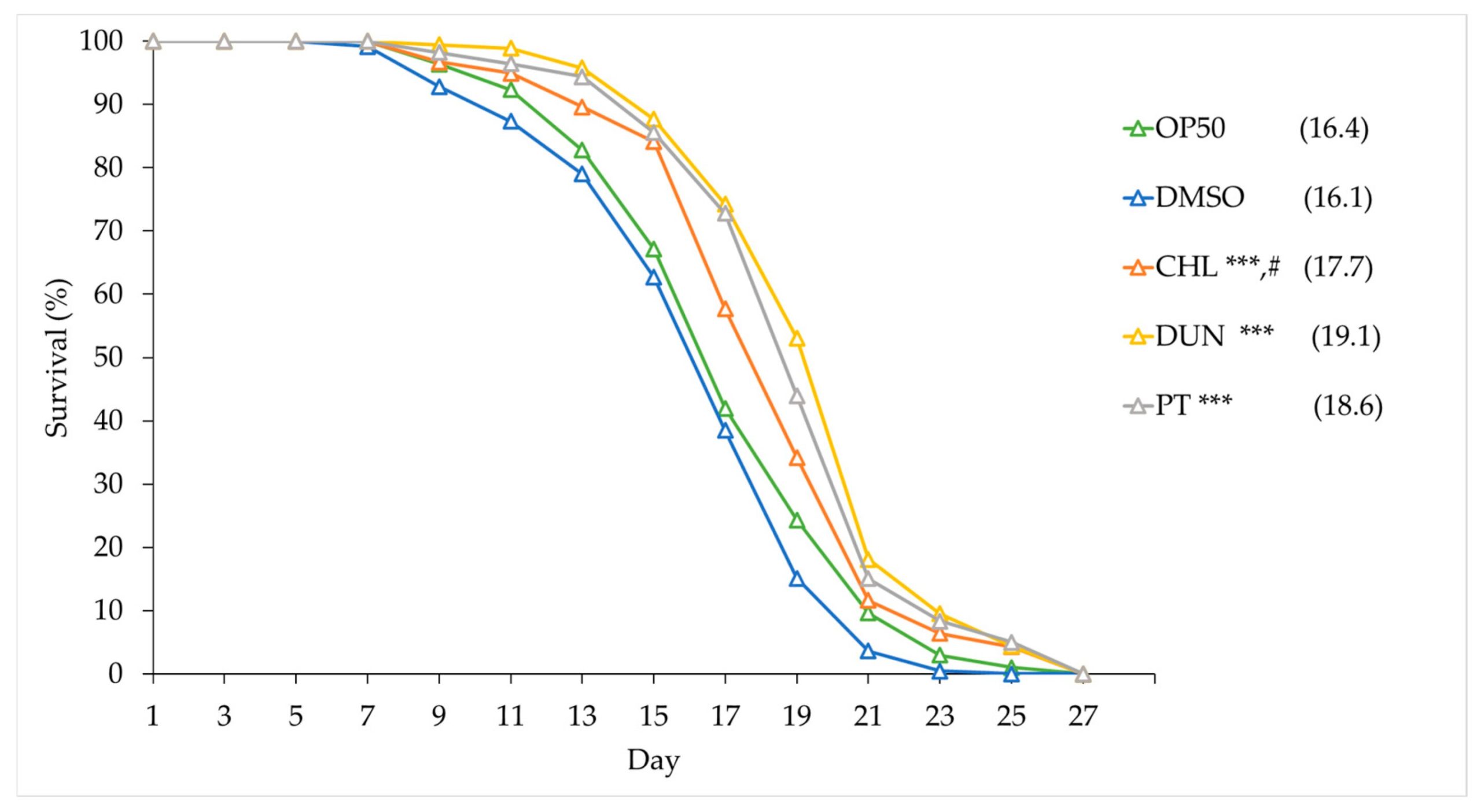![Phytoene-rich extracts and phytoene extend lifespan. Survival curves of C. elegans treated with phytoene and phytoene-rich extracts. CHL: C. sorokiniana [1 µg/mL]; DUN: D. bardawil [1 µg/mL]; PT: Phytoene [1 µg/mL]. Data are represented as composites of three replicates, with median lifespan indicated in parenthesis. Credit: Antioxidants (2024). DOI: 10.3390/antiox13080931 Dietary compound that increases longevity, protects against Alzheimer's disease in experimental models](https://scx1.b-cdn.net/csz/news/800a/2024/dietary-compound-that.jpg)
Researchers from the Color and Food Quality group at the Faculty of Pharmacy (University of Seville), in collaboration with Dr. Marina Ezcurra’s group at the University of Kent (U.K.), have shown that the carotenoid phytoene increases the lifespan of the nematode Caenorhabditis elegans and can slow the onset of paralysis associated with the formation of amyloid plaques in a model of Alzheimer’s disease.
Specifically, increases in longevity of between 10% and 18.6% and decreases in the proteotoxic effect of plaques of between 30% and 40% were observed. These results are published in the journal Antioxidants.
The studies, which form part of Ángeles Morón Ortiz’s doctoral thesis, tested pure phytoene and extracts rich in this carotenoid obtained from microalgae.
According to Dr. Paula Mapelli Brahm, “These are very exciting preliminary results, so we are looking for funding to continue this line of research and to find out by what mechanisms these effects are produced.”
Caenorhabditis elegans is a widely used animal model in biomedicine. In fact, it has been instrumental in important discoveries that have been recognized with the Nobel Prize, such as programmed cell death, RNA interference and applications of the GFP protein.
Professor Antonio Jesús Meléndez Martínez’s team has spent 15 years studying phytoene, which is found in foods such as tomatoes, carrots, apricots, red peppers, oranges, mandarins and passion fruit, among others. It is a compound that is efficiently absorbed and found in many tissues, including the skin, where studies indicate that it can protect against ultraviolet radiation.
The team works on the sustainable production of healthy foods to reduce the risk of disease, with an emphasis on the applications of carotenoids in agri-food, nutrition and cosmetics. In this area they have coordinated international networks in which researchers from more than 50 countries have participated.
More information:
Ángeles Morón-Ortiz et al, Phytoene and Phytoene-Rich Microalgae Extracts Extend Lifespan in C. elegans and Protect against Amyloid-β Toxicity in an Alzheimer’s Disease Model, Antioxidants (2024). DOI: 10.3390/antiox13080931
Citation:
Dietary compound increases longevity and protects against Alzheimer’s disease in experimental models (2024, September 26)
retrieved 6 October 2024
from https://medicalxpress.com/news/2024-09-dietary-compound-longevity-alzheimer-disease.html
This document is subject to copyright. Apart from any fair dealing for the purpose of private study or research, no
part may be reproduced without the written permission. The content is provided for information purposes only.

